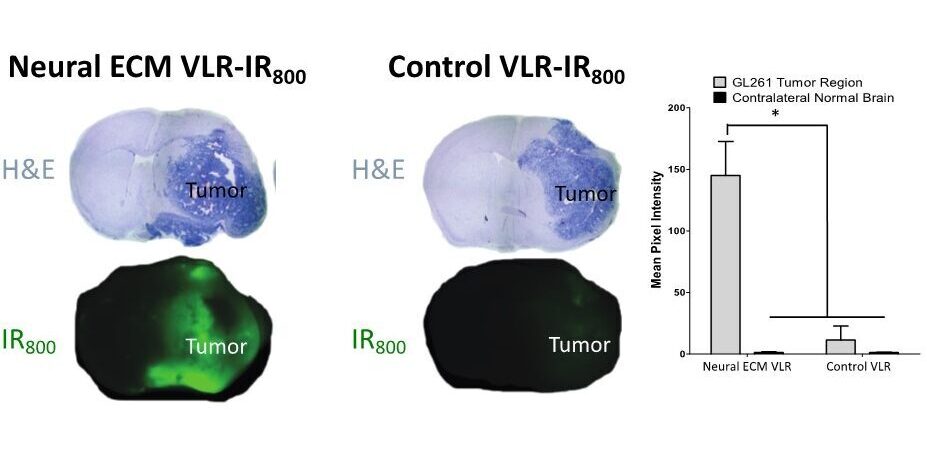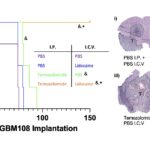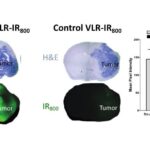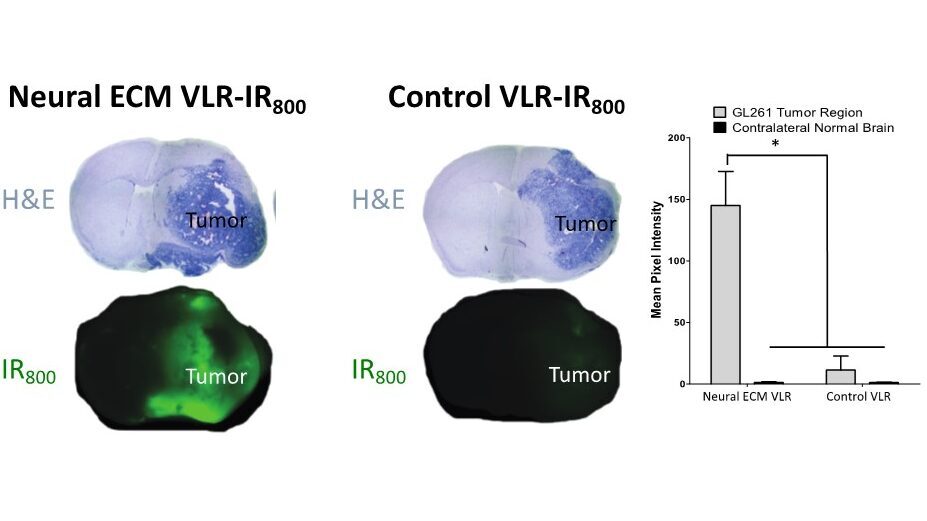We discovered that altering the beat frequency of ependymal cilia enhances the accumulation of chemotherapy in the brain to dramatically improve treatment of glioblastomas (J Control Release. 2023 Oct 19:S0168-3659(23)00674-0.).
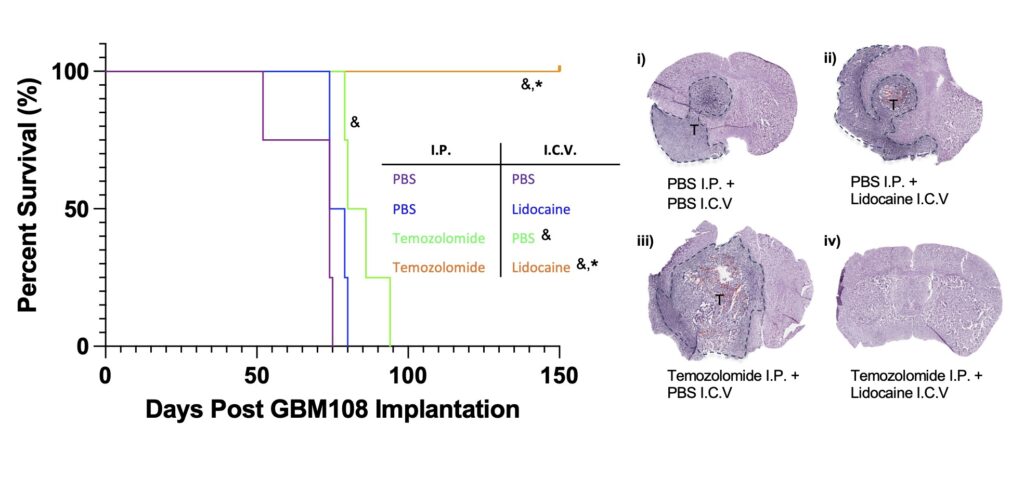
Graph on the left depicts the survival of mice bearing orthotopic brain tumors treated with an ependymal cilia inhibitor (lidocaine) and temozolomide, the standard chemotherapy used for treating brain tumors. Administering with both cilia inhibitor and temozolomide results in 100% of animals surviving tumor free. Representative images of brain slices from mice treated with different combinations of cilia inhibitor and temozolomide are shown on the right. Tumor region is labeled with a “T”.



